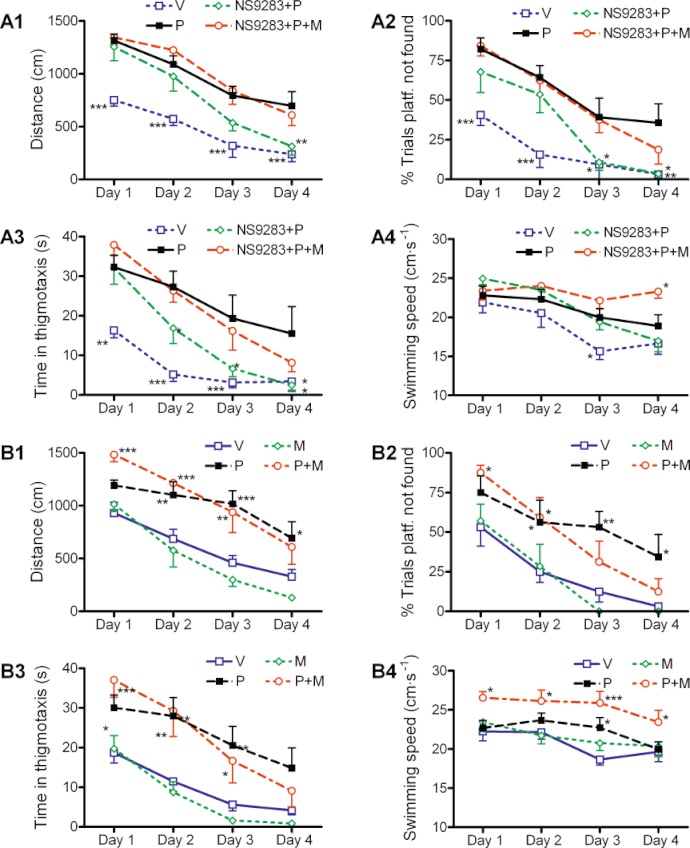Figure 6.

NS9283 improvements in the Morris water maze task were mediated by nACh receptors as evidenced by target engagement studies with mecamylamine. Adult rat acquisition of a visuo-spatial learning task in the Morris water maze was monitored by video over a 4 day period. Task acquisition was impaired considerably by a sub-chronic PCP (1.5 mg·kg−1 s.c., −30 min) administration all 4 days, as evidenced by the significant difference in distance, % trial platform not found and time in thigmotaxis between the vehicle and PCP groups at day 1. (A1–A4) Water maze improvements by NS9283 could be reversed with mecamylamine. NS9283 (0.3 mg·kg−1, p.o., −30 min) produced a significant alleviation of the PCP-deficits and improved task acquisition to nearly control levels at days 3 and 4 depending on behavioural parameter. This effect of NS9283 was completely abolished by co-administration of the non-selective nACh receptor antagonist mecamylamine (3 mg·kg−1, s.c., −30 min). A significant effect on swimming speed was only seen in two of the groups at days 3 and 4 and was generally considered minor. (B1–B4) Mecamylamine does not impair MWM performance or interact with PCP-induced deficits. Effects of mecamylamine (3 mg·kg−1, s.c., −30 min) treatment alone did not differ from the vehicle group at any behavioural parameter at any of the 4 days. Likewise, mecamylamine administration did not significantly affect the main impairments seen with PCP except for an increase in swimming speed at days 1 and 4 (P < 0.05). Results are presented as mean ± SEM (n= 7–8). Significance levels indicated in the graphs were versus the PCP group for A1–A4 (full line pattern) and versus vehicle for B1–B4 (full line pattern) and *: P < 0.05, **: P < 0.01, ***: P < 0.001.
